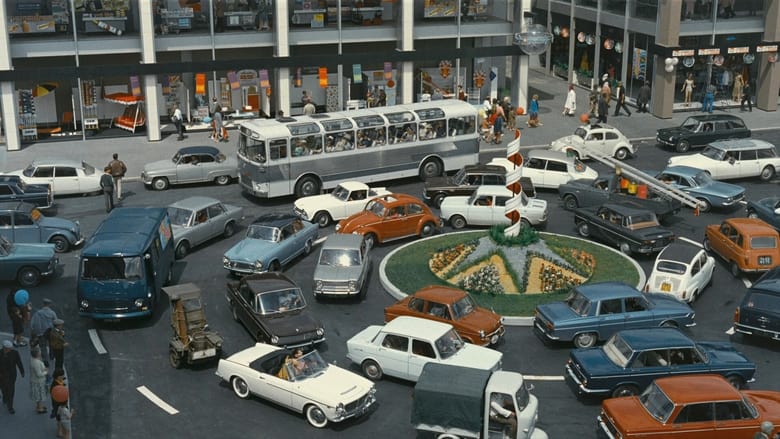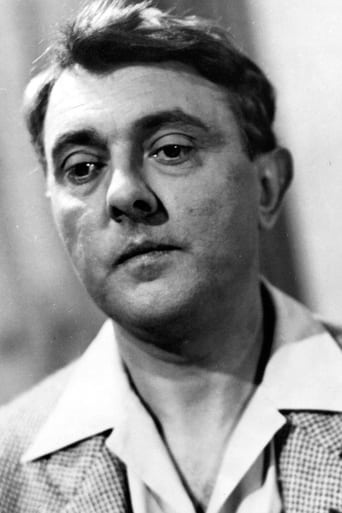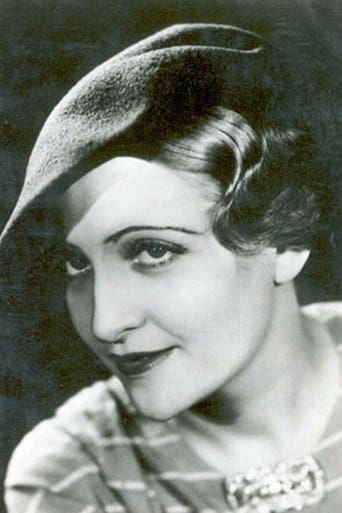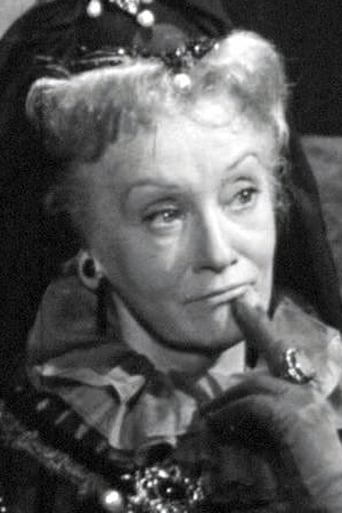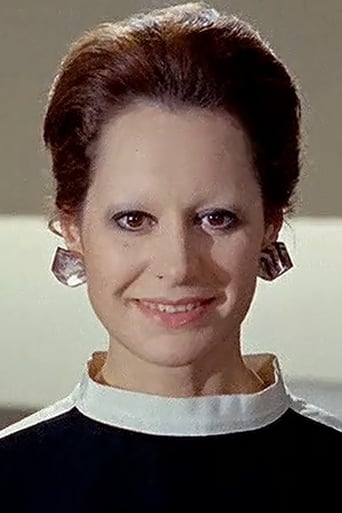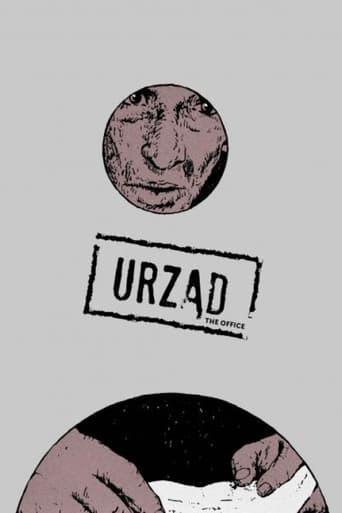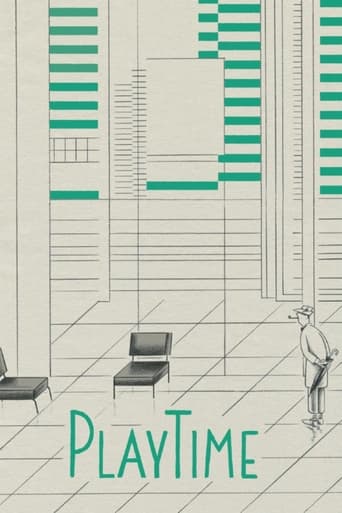
Clumsy Monsieur Hulot finds himself perplexed by the intimidating complexity of a gadget-filled Paris. He attempts to meet with a business contact but soon becomes lost. His roundabout journey parallels that of an American tourist, and as they weave through the inventive urban environment, they intermittently meet, developing an interest in one another. They eventually get together at a chaotic restaurant, along with several other quirky characters.
Similar titles
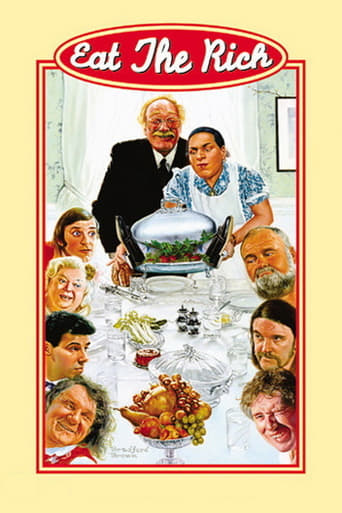
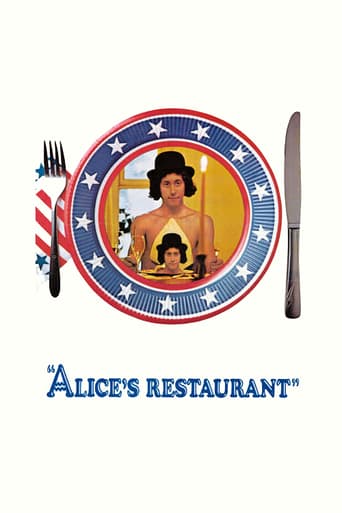
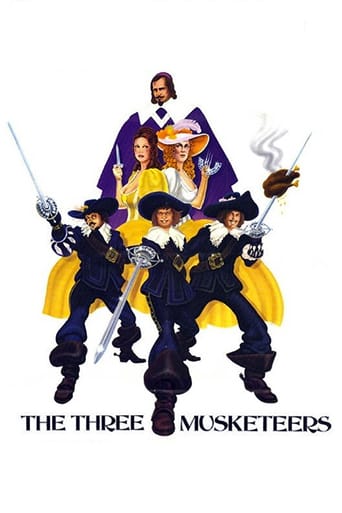
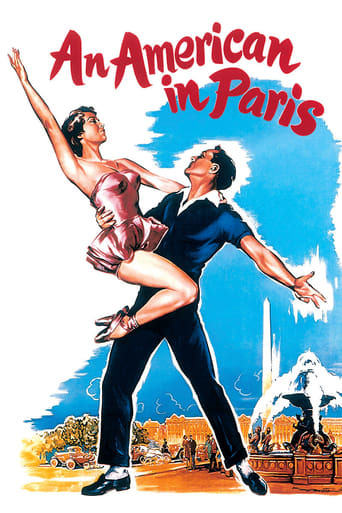
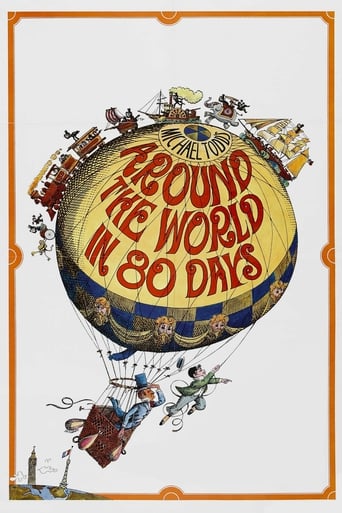
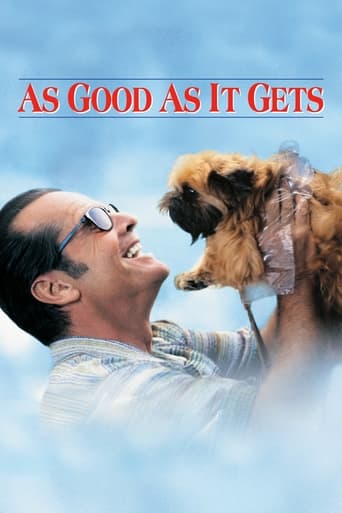
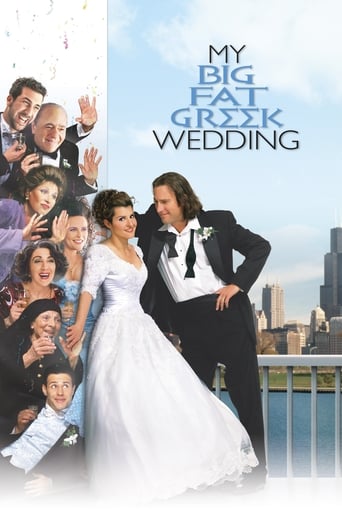
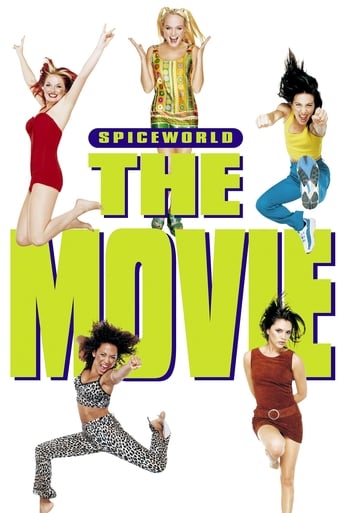
You May Also Like
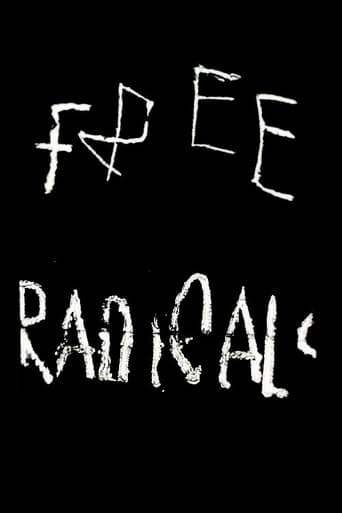
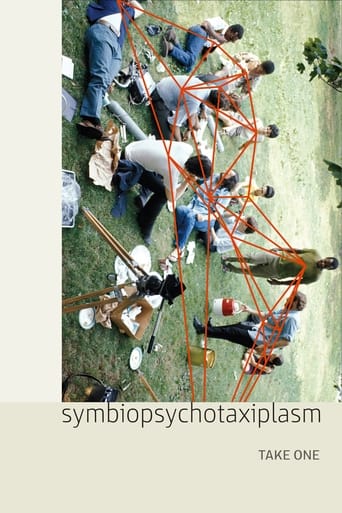
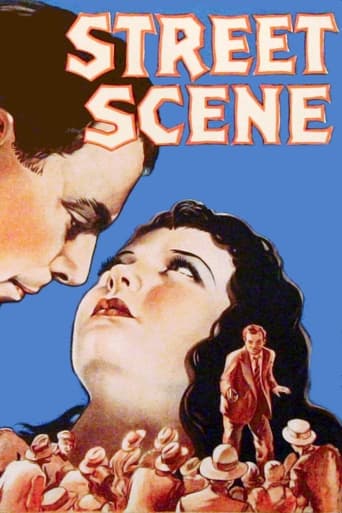
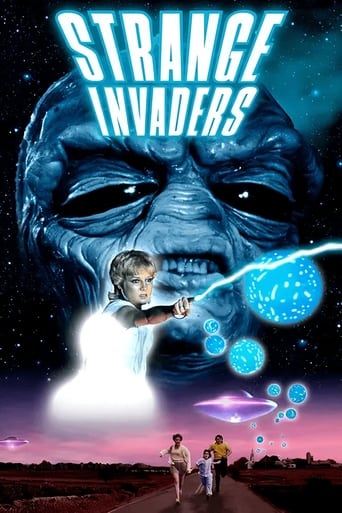
Reviews
Just perfect...
it is finally so absorbing because it plays like a lyrical road odyssey that’s also a detective story.
To all those who have watched it: I hope you enjoyed it as much as I do.
True to its essence, the characters remain on the same line and manage to entertain the viewer, each highlighting their own distinctive qualities or touches.
Tati's Playtime hardly encourages a deep sense of people as individuals - few of its dozens of characters are even granted a medium shot, let alone a close-up. The movie seems to warn of nothing less than collective obliteration - submersion into mass standardization, into absurd consumerism, into systems and surfaces that can only be stained by human intervention (and of course this is even before the online/social media revolution), into hopeless distance from basic pleasures (embodied by the American visitors to Paris who are kept well away from all its points of differentiation). Looked at a certain way, it can feel overwhelming, and even depressing - Tati's choreography is so staggering, often involving multiple bits of foreground and background action in the same shot, that it hardly seems designed for a human spectator. Of course, this is also at the heart of the film's inexhaustible glory, of its status as one of the most singular of all cinematic masterpieces. And Tati seeds his design with remnants of past humanity or portents of a future one - the sudden appearance of old friends, of mysterious near-doubles, of things that are just funny despite everything. The brilliant extended climax in a restaurant that all but gets destroyed on its opening night speaks to the capacity of collective action for transcending stifling corporate calculation. But it's also plainly a one-off, incapable of shaping the following day for more than a few dreamy early-morning hours. In one of its final gags, the movie posits that a moving window might actually influence the object that's being reflected in it - something that might have seemed like the ultimate loss of control, except that Tati presents it as an elating moment, a promise that all isn't yet heavy and tethered. Least of all, of course, M. Hulot, who returns to the crowd as modestly and mysteriously as he emerged from it.
Jacques Tati's films are often looked at with immense praise due to his sets, choreography, and impeccable directing. Yet, none of his films are more praised than Playtime. Coming off his Academy award-winning film Mon Oncle (1958), Jacques Tati decided that he wanted to distance himself from his charming Mr. Hulot character to focus on something different. That "something" was Playtime. Tati poured his heart, soul, and money into Playtime to make sure that it was exactly as he envisioned it. Years later, Playtime continues to be one of the most intelligent, charming, and beautiful comedies ever made.Utilizing large, custom built sets, Tati creates a sterile, cold world full of technological conveniences. This technology seems to blockade natural human interaction. Furthermore, it creates a hectic and confusing environment for Mr. Hulot (who makes minor appearances) as he tries to navigate its maze-like construction. Underneath the surface of Tati's satire of modern life is a world of confusion, class discrimination, and distance. However, this reality never becomes overly depressing as Tati deftly incorporates clever gags that allow us to laugh at Playtime's reality. The film, however, is not one sided to the issues it brings up. Tati seems to revel as well as despise the modern world, giving the film perspective. However, Playtime is much more than a genius satire.Tati is said to have hated close ups and this belief is extremely prevalent in Playtime's cinematography. Shots are crafted in such a way that we see whole crowds of people going about their business in long, single shots. Tati cleverly hides his gags behind these crowds. This requires the audience to observe the crowd as it moves along to see the jokes. Furthermore, because multiple jokes are put on the screen at one time, the film becomes re-watchable. The wonderful use of straight lines, curves, atmospheric lighting, and still shots are beautiful to observe. However, those that enjoy defined plots should stay far away from this movie. It's extremely slow and quite long for an almost plot less film. Many will probably fall asleep due to this, yet those who do are missing out on one of the most inspired comedies of all time.
Jonathan Rosenbaum Like all of the very great comics, before making us laugh, Tati creates a universe. A world arranges itself around his character, crystallizes like a supersaturated solution around a grain of salt. Certainly the character created by Tati is funny, but almost accessorily, and in any case always relative to the universe. He can be personally absent from the most comical gags, for M. Hulot is only the metaphysical incarnation of a disorder that is perpetuated long after his passing.It is regrettable that André Bazin's seminal essay on Jacques Tati ("M. Hulot et le temps," 1953, in Qu'est-ce que Ie cinéma?, vol. I) has been omitted from both volumes of his criticism in English; regrettable, too, that Bazin didn't live to see Tati's masterpiece. To some degree, PLAYTIME can be regarded as an embodiment and extension of Bazin's most cherished Ideas about deep focus, long takes, and the "democratic" freedoms that these techniques offer to the spectator....
I'm sure everybody enjoys actual playtime, but don't think this movie is for everyone. It's long, experimental, and can be quite a chore to get through. I can certainly see the appeal and why it has been so critically acclaimed, but after 45 years of culture and cinematic progression, I feel that whatever relevance/edge this film once had has been lost, and many modern viewers will not understand it.The story, as minimalist as it is, features director Tati starring as Mr. Hulot, who has an important appointment in a retro-futuristic Paris but keeps getting lost and distracted through a long series of sight-gags and pratfalls. It's thin, and I believe it's spread rather far. It's the kind of thing Stan and Ollie would do in 40 minutes.Stylistically, this film seems to be ahead of its time. The photography is highly visual and works symbiotically with the slick production design (the film is a mixture of various shades of grey however, which becomes quite oppressive after a while). The dialogue seems to be mostly irrelevant. Tati himself never speaks, but other characters come and go without much point.Tati needed this film to be a success and after is flopped he was in debt for a long time. It's a shame that it did as Tati clearly lived and breathed this film for its entire production and cared about it a great deal. If it was too oddball for audiences in 1967 it just as niche for the ADHD audiences of today.A well made film, but it takes some amount of patience to get through.
Top Streaming Movies











